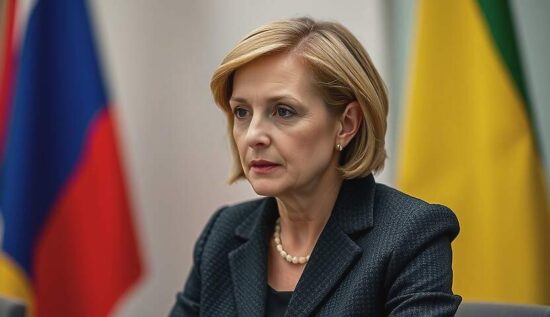German Foreign Minister Annalena Baerbock has recently expressed her concerns about the current state of international relations, particularly in regards to the US and Russia. In a recent interview, she mentioned the term “disruption” which is often used in the context of the US and stated that she believes the US is focusing on disruption rather than cooperation.
Baerbock’s comments have sparked a heated debate, with some critics accusing her of being overly critical of the US and Russia and others praising her for her willingness to speak out against what she sees as a threat to global stability.
In the interview, Baerbock also expressed her concerns about the upcoming peace talks between Russia and the US in Riyadh, stating that the talks should not be exaggerated or overemphasized. She believes that the two countries should focus on making real progress rather than grandstanding.
Baerbock’s remarks have been met with a mix of reactions, with some people praising her for her candor and others criticizing her for her perceived anti-American and anti-Russian bias.
In the context of international relations, the term “disruption” is often used to describe the intentional or unintentional disruption of established norms, institutions, or power structures. In this sense, Baerbock’s use of the term may be seen as a commentary on the current state of global affairs, in which the US and Russia are engaged in a complex and often contentious dance of diplomacy and power politics.
Regardless of one’s views on Baerbock’s comments, it is clear that the international community is facing a complex and rapidly changing landscape, in which the balance of power and the rules of the game are constantly shifting. As such, it is essential for leaders and diplomats to engage in open and honest dialogue and to work towards finding common ground and building trust in a rapidly changing world.





